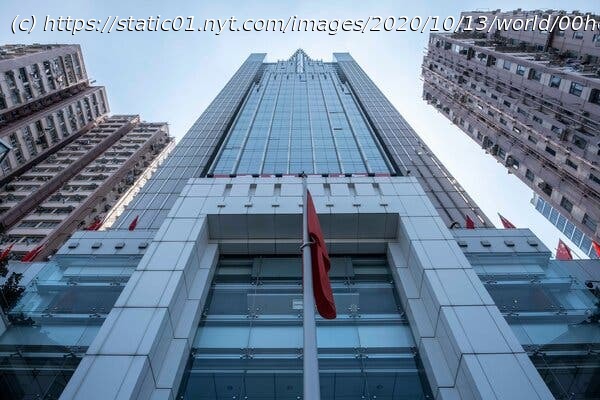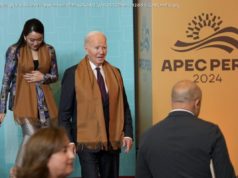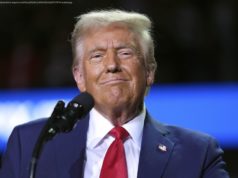The growing power and profile of the Chinese government’s liaison office has brought the party’s playbook into the open.
It was a classic scene from the Chinese Communist Party’s repertoire: A high-ranking official descended on the home of a poor, patriotic worker, bearing gifts and wishes for a happy National Day, receiving declarations of gratitude and loyalty in return. But the visit this month did not take place in a hardscrabble village in mainland China, where officials often make such scripted trips to show their bond with the masses. It played out in Hong Kong, the semiautonomous territory where such overt displays by the Communist Party apparatus were once rare. The much-publicized meeting carried a clear message, made all the more potent since China imposed a new national security law in Hong Kong this summer. The days of the central government exercising its will behind the scenes are over. Now, it will rule Hong Kong increasingly in the open. “Hong Kong’s responsibility to the nation should be emphasized more than ever,” Luo Huining, Beijing’s top official in Hong Kong, who leads the Liaison Office of the Central People’s Government, said in a speech a day before his visit. “Loving our country is an obligation and a righteous path rather than a choice.” For Hong Kong, the shift to more direct management by Beijing is a drastic change. The Communist Party for decades allowed the former British colony to be steered by its proxies in the civil service and the business elite. For Beijing, subduing Hong Kong is seen as fundamental to broader national control. China’s top leader, Xi Jinping, is intent on extending party dominance across the entire country, especially in Hong Kong, an enclave of resistance that erupted in protest last year. At the heart of Beijing’s new drive for control is the liaison office, its official arm in Hong Kong. Historically, the office kept a low profile, serving — as its name implies — as a go-between, shuttling messages and demands between top Chinese officials and the Hong Kong authorities. But in recent months, the office has started regularly blaring orders and warnings that underscore its newly elevated role. The liaison office accused a professor of instigating an anti-party insurrection. It demanded that pro-democracy politicians cancel informal primary elections. It warned Hong Kong teachers to make sure their students are immersed in patriotic Chinese values. On Monday, two days before Hong Kong’s chief executive, Carrie Lam, was set to deliver her annual policy address, she abruptly announced a postponement until she could consult top Chinese leaders about her proposals. She said she would travel to Beijing to “personally explain why these measures are important.” Many of Hong Kong’s traditional power brokers appear resigned to the new reality. “It has become one-way traffic,” said James Tien, a former pro-Beijing lawmaker and influential magnate. The liaison office was born in secrecy, posing during the British colonial era as an outlet of China’s main news agency. When Hong Kong returned to Chinese sovereignty in 1997, China’s rulers were eager to harness the commercial energy of Hong Kong and to learn from its business leaders — and the office operated in the background.






